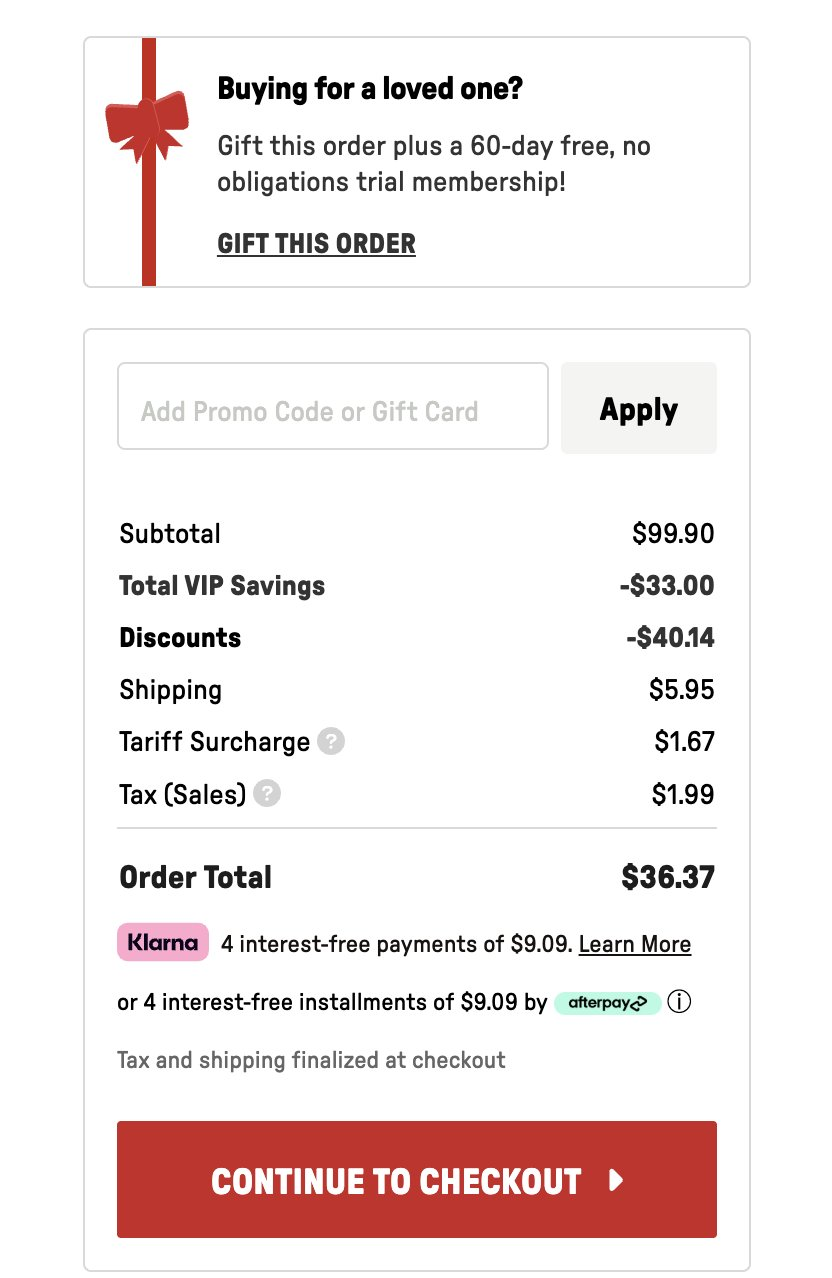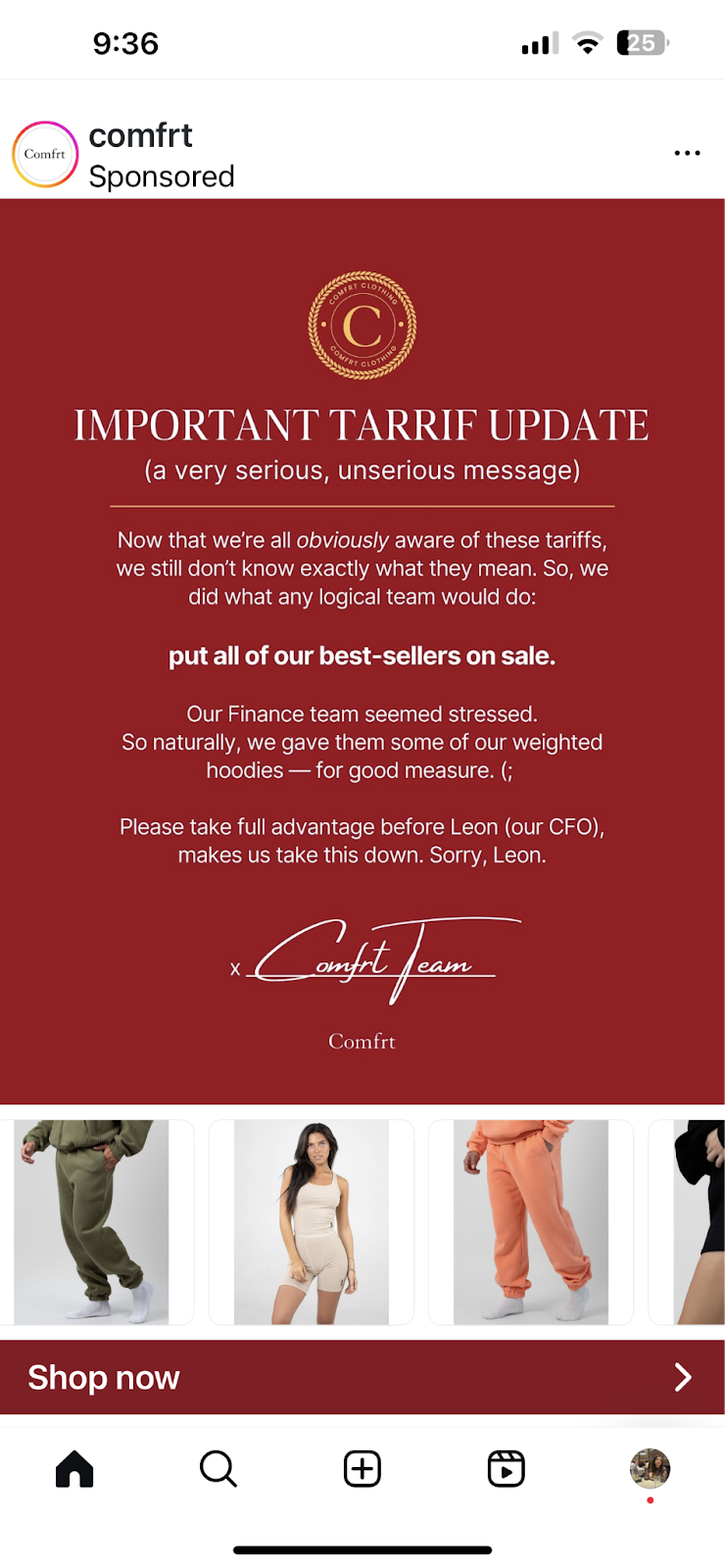
Disaster Capitalism 101—Never Let a Good Crisis Go to Waste


Welcome to Wednesday, futurists.
Last night we hosted an incredible Salon in Los Angeles discussing tariffs, customer relationships, and the fragile state of brand strategy. It was a rousing discussion that lasted late into the wee hours of the morning (as it usually does when Brian is hosting). Thank you to all of our FC Plus community and executive community members who came out to join us.
Our Word of Mouth Index has just been updated for April with fresh insights from our partners at Fairing. This exciting collaboration continues to reveal the hidden power of personal recommendations in driving commerce decisions across industries. The latest data shows WOM-acquired customers commanding a remarkable 10-12% AOV premium—double last year's differential—while certain industries like Apparel and Consumer Electronics enjoy WOM rates approaching 20%. Even more telling? Traditional attribution models still miss a quarter of these high-value transactions, highlighting the critical blind spot in digital analytics that only our proprietary index addresses.

The Tariff Theater: Commerce's New Dark Pattern
"How did you go bankrupt?" Bill asked. "Two ways," Mike said. "Gradually, then suddenly."
— Ernest Hemingway, The Sun Also Rises
Like Hemingway's portrayal of financial ruin, economic opportunism evolves in similar fashion—gradually through incremental testing of boundaries, then suddenly exploding into full visibility when crisis provides convenient cover.
The tariff spectacle unfolding across American commerce offers a masterclass in this phenomenon, because opportunism abounds right now—especially for smaller, undercapitalized brands.
In the wake of Trump's sweeping tariff announcements (and subsequent retractions), a curious performance has emerged—one that reveals the opportunistic core of retail economics. Despite the 90-day pause on tariffs for "non-retaliating countries" triggering a historic 9% market rebound, numerous brands continue to mobilize these “phantom taxes” in their pricing strategies.

The sleight of hand is both brazen and calculated. Many took to social media to call out brands like Fabletics for implementing a "Tariff Surcharge" line item in their checkout process—a surcharge for regulations not yet in effect, and now potentially postponed by months. “This is normal in the Trump economy,” wrote Brian Krassenstein on X.
In reality, Fabletics has had a tariff surcharge for nearly five years since Trump’s first term, in a split-test exposed to select customers in an 80/20 split.
The accusation, however, is undergirded by the reality of a halo of other brand activity and represents the evolution of a very real dark pattern in marketing: from mere annoyance to economic exploitation—a quantum leap from the subtly misleading to the explicitly disingenuous.

What makes this particularly insidious is the reality of inventory—most of these retailers already possess onshore stock that would remain unaffected by any immediate tariff implementation. Yet they've seized upon collective economic anxiety as a pretext for price adjustments that bear no relation to actual cost structures.
It's Disaster Capitalism 101: never let a good crisis go to waste, even if you have to amplify—or in this case, prematurely implement—the crisis.
The comically-timed reaction of Restoration Hardware's CEO watching his stock plummet in real-time now seems a fitting metaphor for this moment—genuine shock overlaid with performative crisis that masks opportunistic pricing strategies. The theatrical elements cannot be overstated; we are witnessing commerce as performance art, with consumers as the unwitting audience.

This phenomenon extends beyond retail into policy spheres, where ICE's Acting Director envisions an "Amazon-like deportation system"—commerce frameworks appropriated for government operations under the mantra of "treating this like a business." When deportation becomes "Prime, but with human beings," we've crossed a threshold where commercial systems aren't just analogies but blueprints for governance.
Ana Luisa and other DTC jewelry brands have joined this macabre dance, sending urgent emails about impending price increases due to tariffs and record-high gold prices. The formula is consistent: create urgency ("Now is the time to shop"), suggest inevitability ("Price adjustments unavoidable"), and position the brand as reluctant participant ("We've been absorbing rising costs... but").
Meanwhile, as consumers frantically adjust spending patterns in response to these manufactured price signals, the global supply chain tells a different story. Vietnam's swift capitulation to U.S. demands demonstrates how quickly these trade tensions dissolve when economic self-interest aligns. The threat became leverage, and the leverage produced compliance, but the tariff narrative persists in checkout processes across the digital sphere.

The theater of tariffs reveals an uncomfortable truth: for smaller undercapitalized brands, economic uncertainty is as much a genuine threat to business operations as it is a narrative device for justifying defensive consumer extraction.
It's commerce's newest dark pattern, performed on a macroeconomic stage—a gradual testing of ethical boundaries that has suddenly blossomed into explicit opportunism under the convenient cover of global trade tensions.
— Phillip

Algorithmic Despotism Goes Corporate! In a power move that defines commerce's technological trajectory, Tobi Lütke leaked his own internal memo declaring "reflexive AI usage" a baseline expectation for all Shopify employees. This formalization transforms artificial intelligence from competitive advantage to table stakes, effectively ending the optional era of AI adoption.
The Great Easter Blackout. As seasonal shopping reaches its crescendo, Dollar Tree confirms operating hours for all 16,000 locations during what's being termed a "retail blackout" period. At the same time, Target announces a 24-hour closure—joining Aldi, Publix, Sam’s and Costco—and revealing divergent approaches to balancing sales opportunities with labor management.


Dystopia: Now Available in Size Medium! In a collaboration that feels uncomfortably on-the-nose, Shein partners with The Hunger Games for a themed collection. The irony of fast fashion—an industry frequently criticized for exploitation—adopting imagery from a narrative about class warfare and oppression appears lost on marketing executives but not on eagle-eyed social critics.



Same-Day Deportation, Anyone? In perhaps the most disturbing convergence of commerce and policy, ICE envisions an Amazon-like deportation system described as "Prime, but with human beings." This chilling appropriation of commercial frameworks for human displacement represents the troubling endpoint when business efficiency models colonize government operations.
Your Spotify Glitches Are Foretold in Prophecy. In a hauntingly prescient parallel, E.M. Forster's 1909 short story "The Machine Stops" appears to have predicted our gradual acceptance of deteriorating digital services. The prophetic passage—"I can never be sure of my music now. It gets worse and worse each time I summon it"—captures with eerie precision our collective acquiescence to declining quality in streaming platforms.










.svg)
